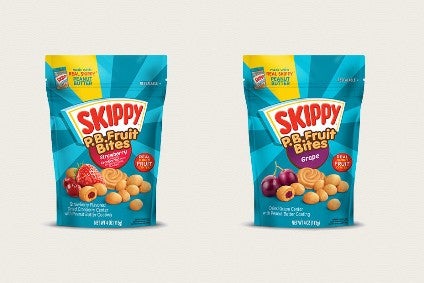
Hormel Foods does not anticipate the elevated retail demand driven by Covid-19 to fall off a cliff next year but does expect growth through the channel to tail-off as the out-of-home sector starts to reopen.
Jim Snee, the president and chief executive of the US company, which owns the Spam meat and Skippy peanut butter brands, said a recovery in foodservice will largely be dependent on a vaccine. He noted Hormel’s out-of-home business has “historically” accounted for 40% of sales through its refrigerated food segment, which fell double-digits in the fourth quarter and contributed to a 17% drop in earnings for the division.

Discover B2B Marketing That Performs
Combine business intelligence and editorial excellence to reach engaged professionals across 36 leading media platforms.
Snee expects consumers to be eager to visit restaurants again once a vaccine reaches the wider population, and suggested there is an element of “fatigue” with lockdowns and eating at home.
“I do think we are going to see that shift away from dining at home, back into the foodservice channel, the key is at what rate,” Snee told analysts yesterday (24 November) on a call to discuss Hormel’s fourth-quarter and full-year financial results.
He continued: “I don’t think retail is just going to hit that cliff. We expect a moderation of retail and we do expect an expansion of foodservice. The unknown is what is the right rate or the right number in 2021. But there is certainly fatigue, I think it’s the right word to use. Over time, we do expect our foodservice business to continue to be a growth vehicle for our organisation.”
Despite his expectations for a “modest recovery” in foodservice next year, Snee does not expect a return to pre-Covid levels just yet, and pointed out it will be difficult to fully offset those sales through retail given the pantry-loading seen during the early months of the virus outbreak.

US Tariffs are shifting - will you react or anticipate?
Don’t let policy changes catch you off guard. Stay proactive with real-time data and expert analysis.
By GlobalDataIn Hormel’s fourth quarter, the company’s net sales declined 3% to US$2.4bn, while sales were down 4% on an organic basis. However, the company described fiscal 2020, which ended on 25 October, as a “record” year, with sales up 1% at $9.6bn and organic growth coming in at 2%.
CFO Jim Sheehan said: “The main issue here is that you won’t see the volatility that you saw especially in the second and third quarter of 2020. Those periods we had a drastic decline in the foodservice demand and then you have plant shutdowns. And it just created almost a violent level of volatility that we believe will be a more stable environment in 2021.”
On capacity, CEO Snee said Hormel “didn’t meet the demands of the business in the fourth quarter” but is working on fixes “behind the scenes”, as volumes decreased 2% and fell 3% in organic terms. However, volumes in the grocery segment increased 1%.
Hormel incurred $80m in Covid-19-related costs during the year linked to lower production volumes, employee bonuses and safety measures, but estimates “most of the incremental supply-chain costs are temporary and can be minimised after the pandemic subsides.”
Snee added: “We need to all understand when does the vaccine come into play. When is it distributed? When can we see broad distribution? The demand side and the supply side for us, we feel really good about as we head into 2021.”





